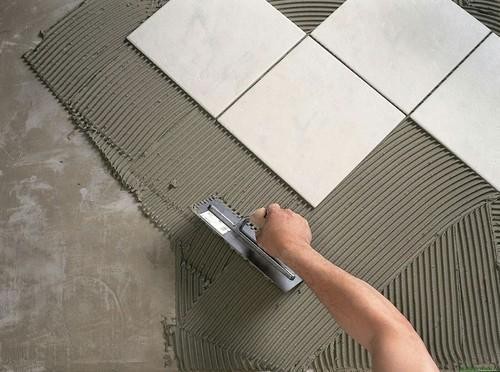A concept by TileOx Tile Adhesive
When it comes to tile installation, choosing the right adhesive is one of the most important steps for achieving a strong, beautiful, and long-lasting finish. Tile adhesives, also known as tile fixing materials, play a vital role in bonding tiles securely to surfaces — whether it’s for your home, office, or any large-scale commercial project.
In this article, TileOx explains why adhesives are essential for proper tile installation and how to choose the best one for your project.
Why Adhesives Matter in Tile Installation
Using tile adhesives is not just about sticking tiles to the surface — it’s about ensuring durability, flexibility, and a professional finish. Let’s look at the major reasons why adhesives are so important.
The
biggest advantage of using tile adhesive is its superior bonding strength.
Unlike ordinary cement, tile adhesives such as TileOx Dry Mix or Easy Mix are
specially formulated to create a powerful bond between tiles and the surface
beneath.
This ensures that tiles stay firmly in place for years, resisting cracks,
moisture, and general wear and tear. Strong bonding directly means longer life
and reduced maintenance costs.
2. Flexibility Across Different Surfaces
Tile
adhesives are designed to work well on various surfaces — from concrete floors
and plastered walls to wet areas like bathrooms, balconies, and kitchens.
Where traditional cement may struggle to hold tiles properly on smooth or
vertical surfaces, TileOx adhesives provide excellent grip and flexibility,
ensuring a stable installation even in challenging areas.
3. Smooth and Seamless Finish
A
professional-looking finish makes all the difference. TileOx adhesives help
achieve a smooth, even, and clean finish without gaps or uneven levels.
This not only improves the look of the space but also prevents issues like tile
lifting or cracking later.
With the right adhesive, you can achieve a flawless appearance that complements
your design vision perfectly.
4. Freedom in Tile Design and Application
Good-quality
adhesives like those from TileOx make it easier to work with different tile
types and designs — ceramic, vitrified, marble, granite, and more.
Because the bonding strength is high, you can confidently install heavy or
large-format tiles on floors and walls without worrying about slippage or poor
adhesion. This versatility gives designers and homeowners the freedom to
experiment with creative layouts.
5. Time and Cost Efficiency
TileOx
adhesives are ready-to-use and quick to apply, reducing installation
time significantly. Since they provide strong adhesion and require less
material compared to cement, they also help save money in the long run.
Moreover, less wastage and faster setting mean quicker project completion —
ideal for both residential and commercial works.
Choosing the Right Adhesive
Selecting
the correct adhesive depends on your tile type, surface condition, and area of
application (indoor or outdoor).
Before buying, always check:
- Product quality and certifications
- Customer reviews or feedback
- Brand reputation and technical support
- Price and suitability for your specific use
TileOx offers expert guidance to help you choose the right adhesive that meets your project’s demands perfectly.
Conclusion
At TileOx, we believe that the right adhesive forms the foundation of every successful tile installation. Our range of premium tile adhesives is crafted to ensure strong bonding, smooth finishes, and long-lasting durability — no matter the surface or environment.
Whether it’s a home renovation or a large-scale construction project, TileOx provides the perfect adhesive solutions for indoor, outdoor, residential, and commercial applications.









